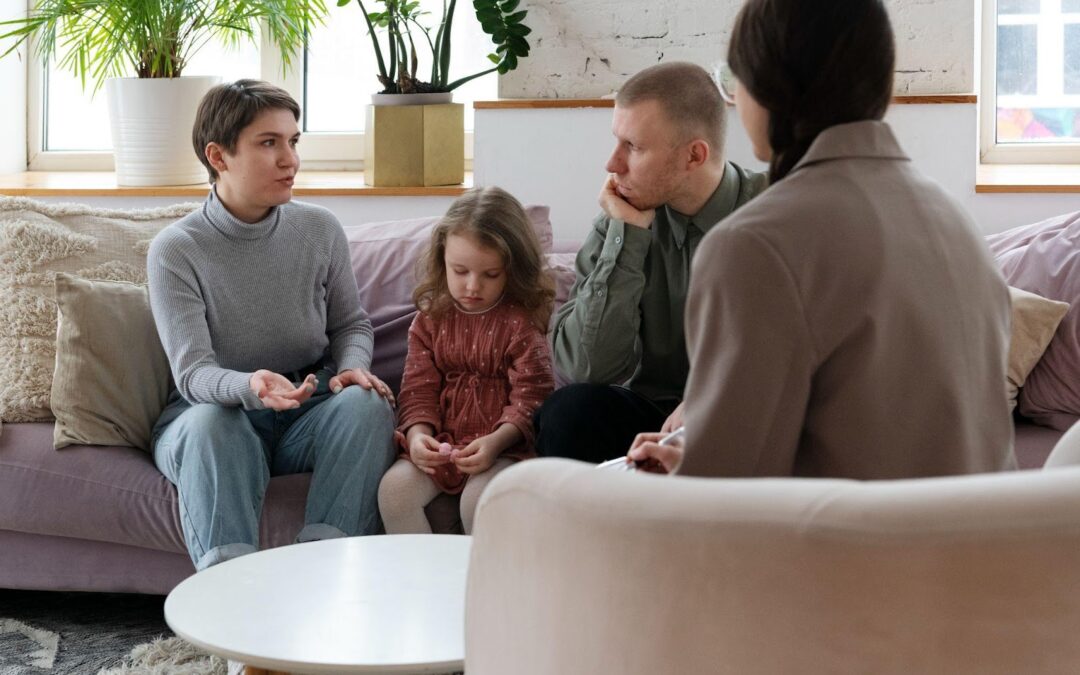Article by Natasha Sani
Family conflict is an inevitable aspect of human relationships. Whether it’s disagreements over finances, parenting styles, or simply differences in personalities, conflicts within families can be emotionally draining and challenging to resolve. However, amidst the turmoil, there exists a beacon of hope: counseling. Counseling provides a safe space for families to navigate through their conflicts, fostering understanding, communication, and ultimately, healing.
The Five Benefits of Family Counseling:
- Understanding the Dynamics One of the primary benefits of counseling in the context of family conflict is gaining a deeper understanding of the dynamics at play. Often, conflicts arise from underlying issues that may not be immediately apparent. Through counseling, families can explore these underlying factors in a supportive environment guided by a trained counselor.
- Improved Communication Effective communication is key to resolving conflicts within families. However, in the heat of the moment, emotions can run high, leading to misunderstandings and hurt feelings. Counseling provides families with the tools and techniques to communicate more effectively, fostering empathy, active listening, and constructive dialogue. By learning how to express their thoughts and feelings in a healthy manner, family members can work towards resolving conflicts and strengthening their relationships.
- Conflict Resolution Skills Conflict is a natural part of any relationship, but it’s how we handle it that makes all the difference. Counseling helps equip families with the necessary conflict resolution skills to navigate through disagreements in a constructive manner. From negotiation and compromise to problem-solving techniques, counseling empowers families to find mutually beneficial solutions to their conflicts, fostering a sense of cooperation and unity.
- Emotional Support Family conflict can take a significant toll on everyone involved, leading to feelings of anger, resentment, sadness, and frustration. Counseling provides a safe and non-judgmental space for family members to express their emotions and explore their underlying concerns. Through empathetic listening and validation, counselors support individuals in processing their emotions and develop healthy coping mechanisms to deal with stress and conflict.
- Strengthening Relationships Ultimately, the goal of counseling is to strengthen relationships within the family unit. By addressing conflicts head-on and working through them together, families can rebuild trust, deepen their connections, and foster a sense of closeness and understanding. Counseling helps families identify their shared values and goals, allowing them to realign their priorities and move forward with a renewed sense of purpose and unity.
Family counseling offers a variety of benefits for families navigating through conflict. From gaining a deeper understanding of the dynamics at play to improving communication, conflict resolution skills, and providing emotional support, counseling serves as a guiding light in the midst of turmoil. By embracing counseling as a tool for growth and healing, families can overcome their differences, strengthen their relationships, and embark on a journey towards greater harmony and resilience. Remember, it’s never too late to seek help and work towards a brighter tomorrow.
References:
- Cherry, K. (2023). What is Family Systems Therapy? Very Well Mind. https://www.verywellmind.com/family-systems-therapy-definition-techniques-and-efficacy-5213785
- Jiménez, L., Hidalgo, V., Baena, S., León, A., & Lorence, B. (2019). Effectiveness of Structural⁻Strategic Family Therapy in the Treatment of Adolescents with Mental Health Problems and Their Families. International journal of environmental research and public health, 16(7), 1255. https://doi.org/10.3390/ijerph16071255
- Varghese, M., Kirpekar, V., & Loganathan, S. (2020). Family Interventions: Basic Principles and Techniques. Indian journal of psychiatry, 62(Suppl 2), S192–S200. https://doi.org/10.4103/psychiatry.IndianJPsychiatry_770_19

